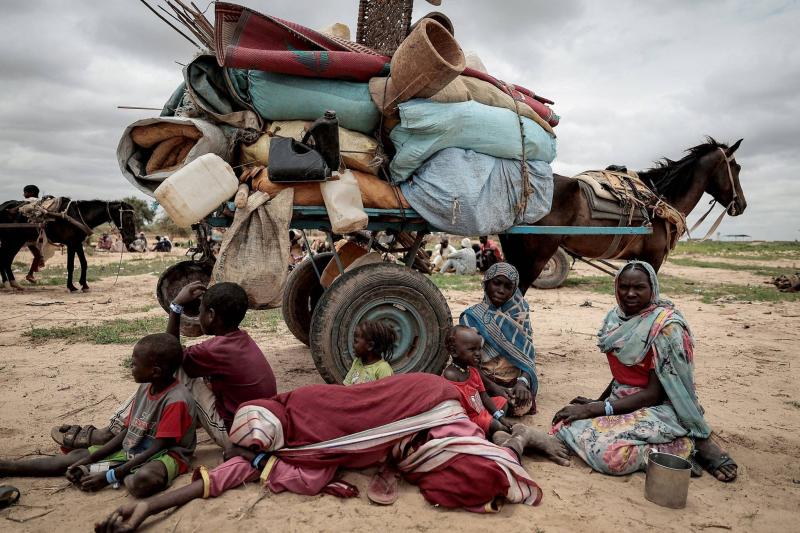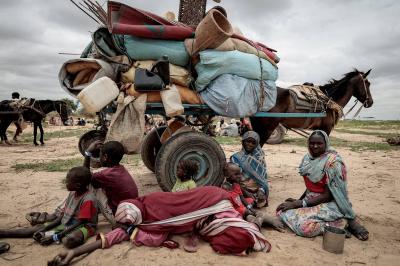The United Nations has warned that "families in conflict areas in Sudan may face conditions resembling famine by the next summer, while some in the war-stricken capital, Khartoum, live on one meager meal a day." The UN states that "around 30 million people, nearly two-thirds of the population, need assistance in Sudan, which is triple the number before fighting broke out between the army and the Rapid Support Forces in mid-April."
Eddie Roy, the director of the World Food Program in Sudan, noted that "more and more people are struggling to have a basic meal each day, and if the situation doesn't change, there is a very real risk that they won't even be able to have that." According to the United Nations' Integrated Food Security Phase Classification, approximately 18 million people urgently need food humanitarian assistance, the highest figure recorded for the country's most abundant harvest season.
Those in need are primarily based in the capital, Khartoum, where more than half of them are facing severe food insecurity, as well as in the crowded cities and towns that have experienced fighting in the Darfur and Kordofan regions. Governments declare a famine when 20 percent of households in a specific geographic area are in a catastrophic phase.
The conflict has devastated Khartoum and provoked ethnically motivated killings in Darfur. Both warring parties have been accused of seizing supplies and obstructing access for relief workers. In the Al-Shajara neighborhood south of Khartoum, near the besieged armored forces of the army, one volunteer stated that "the Rapid Support Forces took most of the supplies meant for the two thousand people who did not flee the area."
Jihad Salah Al-Din, who works in an emergency response room—a network of volunteer groups providing most of the on-the-ground assistance in Khartoum—said, "The siege makes it hard to do anything; even if you have money, there’s nowhere to spend it." After running out of chickpeas, volunteers managed to find two 25-kilogram bags of corn flour to make porridge, sweetened with the last available bag of sugar. This is expected to last for four days. Salah Al-Din commented, "After that, we leave it to God."
**Insufficient Aid**
The Integrated Food Security Phase Classification has revised its estimates of the number of people suffering from hunger upward as the scope of fighting has expanded, destroying local markets and impacting agriculture. The Food and Agriculture Organization (FAO) stated last month that "the area cultivated by farmers during this year’s season was 15 percent less than the average over the past five years."
The World Food Program and other relief agencies are struggling to safely reach people in the most affected conflict areas and have been forced to focus aid in more peaceful regions. The program reached Khartoum, where only a few million still reside, only once in the past three months, distributing food to 100,000 people in the Karari locality during a respite in fighting.
Only one-third of what the UN requested for Sudan in 2023 has been funded, and similarly, the response to the organization's appeals for similar crises, except for Ukraine, which received 56 percent of the required funding. The United Nations is requesting $4 billion for the upcoming year to meet the needs of those affected by the war inside and outside of Sudan.




